Which of the following sublimes on heating ?
Al2O3
Al(OH)3
(AlH3)n
(AlCl3)n
To determine which of the given compounds sublimes on heating, we will analyze each option step by step.
Step 1: Analyze Al2O3 (Aluminum Oxide)
- Nature: Al2O3 is a covalent compound.
- Sublimation: Covalent compounds generally do not sublime because they have strong intermolecular forces that require significant energy to break.
- Conclusion: Al2O3 does not sublime on heating.
Hint: Remember that covalent compounds typically have strong bonds that resist breaking upon heating.
Step 2: Analyze Al(OH)3 (Aluminum Hydroxide)
- Nature: Al(OH)3 is amphoteric, meaning it can react with both acids and bases.
- Sublimation: Amphoteric compounds can sometimes sublime, especially when they have a lower molecular weight or are less stable in solid form.
- Conclusion: Al(OH)3 can sublime on heating.
Hint: Amphoteric compounds can exhibit unique properties, so consider their behavior under heat.
Step 3: Analyze AlH3 (Aluminum Hydride)
- Nature: AlH3 is a polymeric compound (indicated by the variable n).
- Sublimation: Due to its large molecular structure, it is unlikely to sublime as the polymeric nature means it has stronger intermolecular forces.
- Conclusion: AlH3 does not sublime on heating.
Hint: Large polymeric molecules often do not sublime due to their strong intermolecular interactions.
Step 4: Analyze AlCl3 (Aluminum Chloride)
- Nature: AlCl3 can exist in different forms, but it is often found as a dimer or polymer in solid state.
- Sublimation: Similar to AlH3, the polymeric nature of AlCl3 means it is less likely to sublime upon heating.
- Conclusion: AlCl3 does not sublime on heating.
Hint: Consider the molecular structure and bonding when evaluating sublimation potential.
Final Conclusion
Based on the analysis of each compound:
- Al2O3: Does not sublime.
- Al(OH)3: Sublimes on heating.
- AlH3: Does not sublime.
- AlCl3: Does not sublime.
Thus, the correct answer is Al(OH)3.
- Nature: Al2O3 is a covalent compound.
- Sublimation: Covalent compounds generally do not sublime because they have strong intermolecular forces that require significant energy to break.
- Conclusion: Al2O3 does not sublime on heating.
- Nature: Al(OH)3 is amphoteric, meaning it can react with both acids and bases.
- Sublimation: Amphoteric compounds can sometimes sublime, especially when they have a lower molecular weight or are less stable in solid form.
- Conclusion: Al(OH)3 can sublime on heating.
- Nature: AlH3 is a polymeric compound (indicated by the variable n).
- Sublimation: Due to its large molecular structure, it is unlikely to sublime as the polymeric nature means it has stronger intermolecular forces.
- Conclusion: AlH3 does not sublime on heating.
- Nature: AlCl3 can exist in different forms, but it is often found as a dimer or polymer in solid state.
- Sublimation: Similar to AlH3, the polymeric nature of AlCl3 means it is less likely to sublime upon heating.
- Conclusion: AlCl3 does not sublime on heating.
Based on the analysis of each compound:
- Al2O3: Does not sublime.
- Al(OH)3: Sublimes on heating.
- AlH3: Does not sublime.
- AlCl3: Does not sublime.
Topper's Solved these Questions
- p-BLOCK ELEMENTS-1BOOK - VMC MODULES ENGLISHCHAPTER - p-BLOCK ELEMENTS-1EXERCISE - LEVEL 2
73 Videos
- p-BLOCK ELEMENTS-1BOOK - VMC MODULES ENGLISHCHAPTER - p-BLOCK ELEMENTS-1EXERCISE - JEE Main Archive
34 Videos
- p-BLOCK ELEMENTS-1BOOK - VMC MODULES ENGLISHCHAPTER - p-BLOCK ELEMENTS-1EXERCISE - JEE Advanced Archive
48 Videos
- MOCK TEST 9BOOK - VMC MODULES ENGLISHCHAPTER - MOCK TEST 9EXERCISE - CHEMISTRY (SECTION 2)
5 Videos
- PERIODIC PROPERTIES OF ELEMENTSBOOK - VMC MODULES ENGLISHCHAPTER - PERIODIC PROPERTIES OF ELEMENTSEXERCISE - IMPECCABLE
50 Videos
Similar Questions
Knowledge Check
Which of the following decarboxylate on heating?
A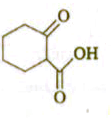 B
B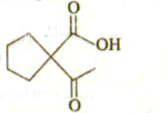 C
C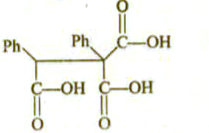 D
D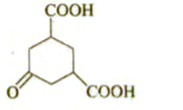
Which one of the following has lowest heat of combustion?
A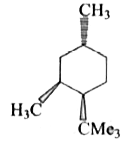 B
B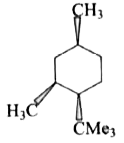 C
C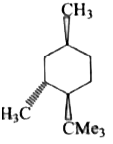 D
D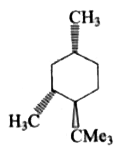
Which of the following liquids does expand maximum on heating?
View SolutionWhich of the following has the highest heat of vaporization ?
View SolutionWhich of the following pairs can be distinguished by the action of heat?
View SolutionWhich of the following has highest heat of neutralization?
View SolutionWhich of the following has highest heat of hydrogenation:
View SolutionWhich of the following solids does not sublime?
View Solution
